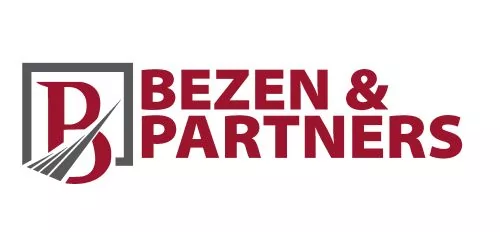Background
The Law on Amendment to Certain Laws to Improve the Investment Environment (the "Amending Law") has been published in the Official Gazette numbered 30356 and dated 10 March 2018. The Amending Law introduces a substantial suite of amendments to various legislation across a wide range of subject matter, each worthy of separate analysis.
This article will discuss amendments to the Law on Movable Pledges in Commercial Transactions (the "Movable Pledge Law").
A brief history of the Movable Pledge Law and the road to the amendments
The Movable Pledge Law was introduced to answer the long-standing need in the Turkish financing market for a general and modern non-possessory security instrument. Previously, non-possessory pledges were possible only for a limited subset of asset classes and most commonly under a security instrument called a "commercial enterprise pledge".
Unfortunately, the Movables Pledge Law in its original form was, at least for many market participants, ourselves included, fell short of these expectations. It suffered from many ambiguities, conflicts with general law principles and gaps.
The changes brought about by the Amending Law attempt to remedy some of these issues, presumably based off market feedback following original enactment of the Movable Pledge Law in 2016.
As discussed below, while some changes are definite improvements, some appear suitable to create further legal uncertainty, making it difficult to regard the changes as an overall net positive.
Eligible asset classes
The Movable Pledge Law lists eligible asset classes on an exhaustive basis (technically termed the "numerus clausus principle"), meaning assets not falling within these asset classes are not be eligible to be pledged under the Movable Pledges Law.
The Amending Law introduces a new sub-paragraph stating "any similar kind of movable assets and rights" to this previously exhaustive list.
This catch-all type addition is in clear conflict with the exhaustive nature originally intended for the Movable Pledge Law. Furthermore and beyond a technical legal concern, it seems difficult for commercial parties and legal practitioners to get comfortable around whether an asset class constitutes an eligibly "similar" asset without the benefit of a robust body of court precedents, which would presumably need years to accumulate.
Commingling
Article 7 of the Movable Pledge Law entitled "Commingling" which provided an express right to claim a proportional pledge over commingled assets has now been replaced entirely and, much more appropriately, matters of commingling have been deferred to general provisions.
Substitute assets, "pledged production processes" and subsequent transferees
The re-cast article 7 of the Movable Pledge Law entitled "Scope of Pledge" now addresses points around substitute assets (such as insurance proceeds, interest income and other proceeds) and creditor protection on subsequent transfers.
The approach to proceeds and substitute assets are confirmations of general law positions and from this perspective it is arguable whether they were necessary at all. But at least, it does not appear readily suitable to create legal uncertainty which the remainder of the article, unfortunately, does to increasing degrees.
The second paragraph of article 7 of the Movable Pledge Law provides, in broad terms, that a "pledged production process" will give rise to security over the receivables generated from such production process. Needless to say the term "production process" is not a term of art. One reasonable interpretation could be that this is meant to capture trade receivables generated from a sale of products.
The third paragraph of article 7 of the Movable Pledge Law provides, very unhelpfully, that a bona fide purchaser of a pledged asset without actual or deemed knowledge of the pledge will be offered protection meaning security will fall away on completion of such transfer. Questions of interpretation around the role of the pledge registry in creating deemed knowledge is far from straightforward and coupled with practical difficulties in establishing deemed knowledge in legal proceedings, this change risks substantially diminishing the value and legal protection offered by a registrable non-possessory pledge.
Limited enforcement options
The Movable Pledges Law provides a number of special enforcement options. The way in which these options were worded created a legal discussion as to whether general enforcement and liquidation proceedings could be pursued by creditors.
The Amending Law clarifies this matter by providing a general right to seek recovery by way of ordinary enforcement proceedings in addition to any special remedies under the Movable Pledge Law.
Other notable amendments
Additional notable amendments brought about by the Amending Law include the following:
- the time period to apply to the registrar for de-registration following retirement of secured amounts has been extended to 15 business days for Turkish creditors and 30 business days for foreign creditors.
- matters not specifically addressed in the Movable Pledge Law will be resolved by reference to the immovable pledge provisions of the Turkish Civil Code as opposed to movable pledge provisions.
- parties will no longer be required to specify detailed particulars for pledged assets if the relevant assets do not have sufficient distinguishing features.
The content of this article is intended to provide a general guide to the subject matter. Specialist advice should be sought about your specific circumstances.



